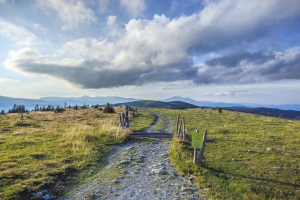Wittgenstein was born on April 26, 1889 in Vienna, Austria, to a wealthy industrial family, well-situated in intellectual and cultural Viennese circles.
In 1908 he began his studies in aeronautical engineering at Manchester University where his interest in the philosophy of pure mathematics led him to Gottlob Frege. Upon Frege’s advice, in 1911 he went to Cambridge to study with Bertrand Russell. Russell wrote, upon meeting Wittgenstein: “An unknown German appeared […] obstinate and perverse, but I think not stupid” (quoted by Monk 1990: 38f). Within one year, Russell was committed: “I shall certainly encourage him. Perhaps he will do great things […] I love him and feel he will solve the problems I am too old to solve” (quoted by Monk 1990: 41).
Russell’s insight was accurate. Wittgenstein was idiosyncratic in his habits and way of life, yet profoundly acute in his philosophical sensitivity.
During his years in Cambridge, from 1911 to 1913, Wittgenstein conducted several conversations on philosophy and the foundations of logic with Russell, with whom he had an emotional and intense relationship, as well as with Moore and Keynes. He retreated to isolation in Norway, for months at a time, in order to ponder these philosophical problems and to work out their solutions. In 1913 he returned to Austria and in 1914, at the start of World War I (1914–1918), joined the Austrian army. He was taken captive in 1918 and spent the remaining months of the war at a prison camp. It was during the war that he wrote the notes and drafts of his first important work, Tractatus Logico-Philosophicus. After the war the book was published in German and translated into English.
In 1920 Wittgenstein, now divorced from philosophy (having, to his mind, solved all philosophical problems in the Tractatus), gave away his part of his family’s fortune and pursued several ‘professions’ (gardener, teacher, architect, etc.) in and around Vienna.
It was only in 1929 that he returned to Cambridge to resume his philosophical vocation, after having been exposed to discussions on the philosophy of mathematics and science with members of the Vienna Circle, whose conception of logical empiricism was indebted to his Tractatus’ account of logic as tautologous, and his philosophy as concerned with logical syntax. During these first years in Cambridge his conception of philosophy and its problems underwent dramatic changes that are recorded in several volumes of conversations, lecture notes, and letters (e.g., Ludwig Wittgenstein and the Vienna Circle, The Blue and Brown Books, Philosophical Grammar). Sometimes termed the ‘middle Wittgenstein’, this period heralds a rejection of dogmatic philosophy, including both traditional works and the Tractatus itself.
In the 1930s and 1940s Wittgenstein conducted seminars at Cambridge, developing most of the ideas that he intended to publish in his second book, Philosophical Investigations. These included the turn from formal logic to ordinary language, novel reflections on psychology and mathematics, and a general skepticism concerning philosophy’s pretensions.
In 1945 he prepared the final manuscript of the Philosophical Investigations, but, at the last minute, withdrew it from publication (and only authorized its posthumous publication). For a few more years he continued his philosophical work, but this is marked by a rich development of, rather than a turn away from, his second phase. He travelled during this period to the United States and Ireland, and returned to Cambridge, where he was diagnosed with cancer. Legend has it that, at his death in 1951, his last words were “Tell them I’ve had a wonderful life” (Monk: 579).
All references in this text are to: Monk, Ray, 1990, Ludwig Wittgenstein: The Duty of Genius, New York: Macmillan.
Source of this Biographical Sketch: Biletzki, Anat and Matar, Anat, “Ludwig Wittgenstein”, The Stanford Encyclopedia of Philosophy (Summer 2018 Edition), Edward N. Zalta (ed.), URL = <https://plato.stanford.edu/archives/sum2018/entries/wittgenstein/>.

